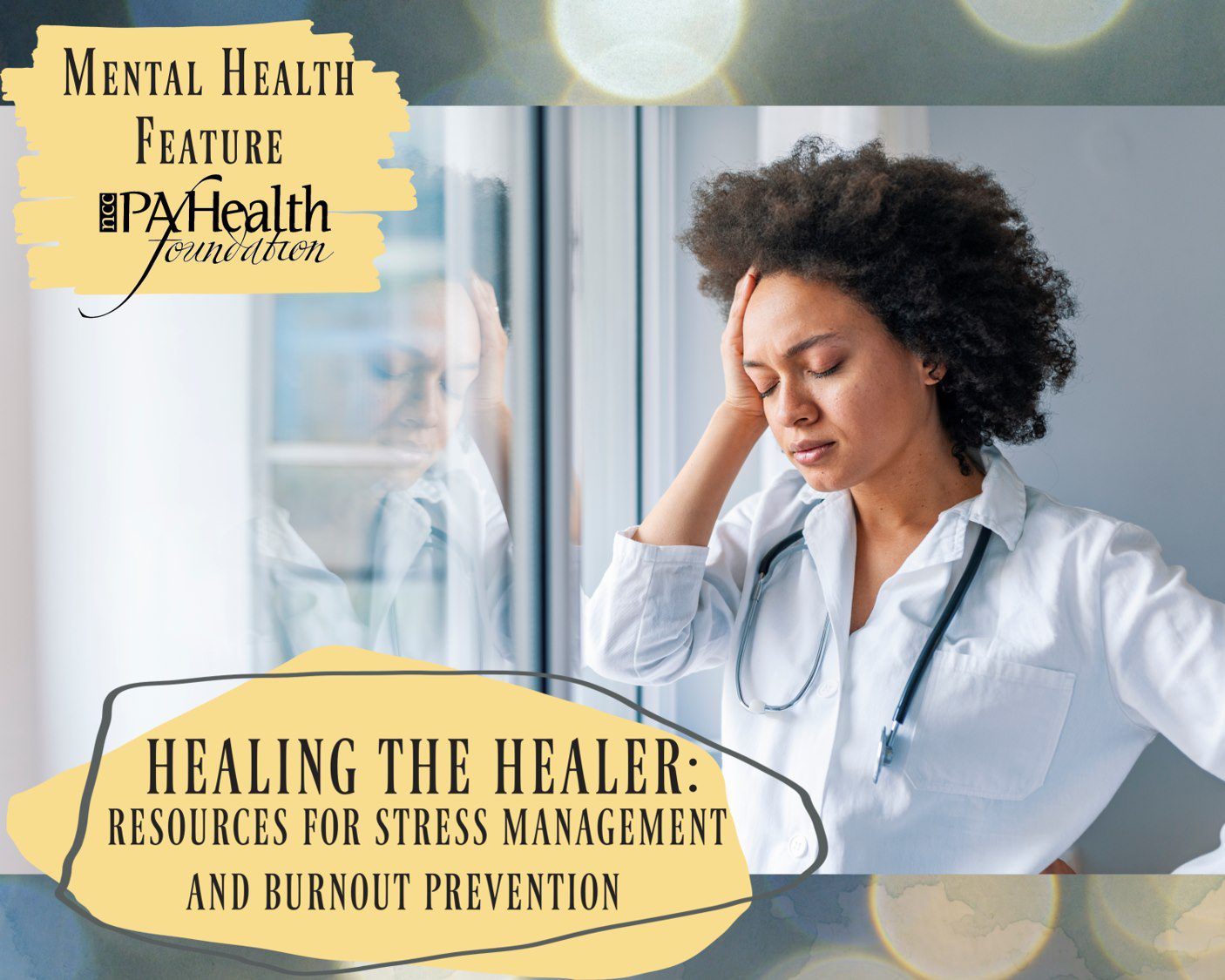Healing the Healer: Resources for Stress Management and Burnout Prevention
As we wind down the year, and the holidays are upon us, it is important to discuss opportunities to embrace and manage the inevitable stress that we will experience. As a medical provider, you may notice an uptick in sick visits, an increase in depressive and anxiety symptoms in your patients, and an overall increase in demand to get work done faster. Of course, stress occurs year-round and the holiday season is not the only time where you may experience exhaustion, detachment, or lack of motivation, also referred to as provider burnout.
The American Psychological Association defines burnout as the physical, emotional, or mental exhaustion, especially in one’s job or career, accompanied by decreased motivation, lowered performance, and negative attitude towards oneself and others. It may result from performing at a high level until stress, especially from extreme and prolonged physical and mental exhaustion or an overburdening workload, takes its toll.
It is important to recognize burnout’s signs and symptoms and to evaluate your work environment for stressors that may be eliminated or lessened. Burnout can manifest physically, emotionally and behaviorally. For example, feeling drained, frequent headaches and muscle tension, having a negative outlook towards patients, feeling detached, powerless or even clinically depressed. You may find yourself withdrawing from responsibilities or using food, drugs, or alcohol to cope.
What is the best way to treat or prevent burnout? That really depends on the provider. It does not have to be time consuming or expensive, and it should not feel like a chore. Multiple studies have found exercise and eating well for your mental health may help manage stress and burnout. In addition, there are many evidence-based strategies beyond these cornerstones of health including mindfulness, unplugging during time off, advocating for yourself to your administration or seeking social and professional support. Healing thyself can be a challenge, but self-care is best for patient care.


